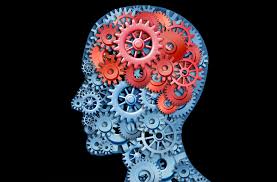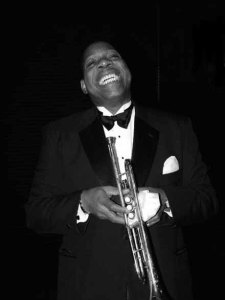Art is the most nearly true mirror of our culture and our heritage. One requires music and art to celebrate our culture and heritage.
Art is our oldest recorded history; an unvarnished record of History, ccr
INTERNATIONAL BLOGGING – Supplement for Financial Support of The Music Education
I.B. MUSICAL EDUCATION SPECIAL EDITION
This is dedicated to my personal musical Troika:
Evan Rogers, director of operations , composer, and guitar
Jessica Abel, soprano, director, development/fundraising
Steven Rogers, teacher, director, and saxophone
Why do we make music? How does it affect our emotions? What role does it play in our lives? [1]
This year’s studies produced some fascinating answers. Yet, each bit of research only prompts its own set of further questions. In August, we compiled seven of year’s most intriguing studies. Those appear again here, along with six additional studies that further elucidate the power music exacts over the human mind.
1. Learning music has a positive effect on teenagers’ brains. [2]

When budgets are tight in America’s schools, among the first areas cut are often music class offerings. But that is to the detriment of our children’s futures, as a June study out of Northwestern University underlined.
Previous research has uncovered numerous benefits of music education for young children, including how it improves spatio-temporal reasoning, verbal skills and impulse control. The June study proves that musical training can have similarly powerful neurological impacts right up through adolescence.
Researchers found that music accelerates neural development and can improve phonological awareness language skills. “Although learning to play music does not teach skills that seem directly relevant to most careers, the results suggest that music may engender what educators refer to as ‘learning to learn,'” Nina Kraus, senior study author and director of Northwestern’s Auditory Neuroscience Laboratory at the School of Communication, said, according to Medical Xpress.
2. We can all be taught how to achieve perfect pitch . To everyone who has been told they can’t hold a tune: there’s hope. According to a February study out of Northwestern University, singing in key is a skill that can be learned, like any musical instrument. Researchers came to this conclusion by testing the singing abilities of three groups with varying musical experience: kindergartners, sixth graders and college-aged adults. Sixth graders turned out to be the most in-tune singers. College students’ skills were comparable to kindergartners. 
“Our study suggests that adults who may have performed better as children lost the ability when they stopped singing,” Steven Demorest, lead researcher and professor of music education at Northwestern, told Science Daily. But his research suggests that if adults were to start practicing again, they could get their skills right back.
3. … but neurological factors can stand in the way of true mastery. “Practice makes perfect” unfortunately has limits. An Oxford Journals study published in July found that an individual’s neural makeup can reveal whether he or she will be able to learn a musical instrument quickly. Researchers put 15 young adults with little to no musical training through a six-week piano program, scanning their brains before and after participation. After training, researchers observed that activity in the auditory cortex, hippocampus and caudate nuclei pre-training could accurately predict the speed at which students learned.
This research builds upon previous studies, including a 2014 study from the University of Helsinki which found that the genes that regulate the sensitivity of one’s inner ear will determine how easily or effectively students will be able to master an instrument. Still, all that genetic predisposition is nothing if one doesn’t nurture that talent.
4. Music can help improve patients’ recovery after surgery …
According to 72 studies covering nearly 7,000 patients, a review published Wednesday on WebMD found that music can significantly affect the outcomes of patients’ operations when listened to before, during or after surgery. “Music is a noninvasive, safe, cheap intervention that should be available to everyone undergoing surgery,” the study’s lead author, Catherine Meads of Brunel University, said in a news release, according to WebMD. “Patients should be allowed to choose the type of music they would like to hear to maximize the benefit to their well-being.”
Researchers found the most profound impacts occurred when patients listened to music before entering the operating room. It helped lower anxiety and reduce pain. It did the same following the operation, additionally helping to increase satisfaction with their care. Unsurprisingly, patients who were given the opportunity to select their own music experienced much greater benefits than those who listened to a set soundtrack.
5. … as well as improve the surgeon’s performance.On the other side of the scalpel, music can also improve the accuracy and speed of surgeons’ stitches.
According to a study out of the University of Texas Medical Branch, senior surgeons had a 10% reduction in repair time when listening to their favorite music, while junior surgeons had an 8% reduction. The quality of their work also improved, according to a panel of plastic surgeons who studied the quality of the stitches after the experiment, unaware of the conditions of the study. The percentages might seem small, but even the smallest improvement can translate into significant cost reductions and decreased chances of complications in the operating room, according to the study’s authors.
6. Our musical taste can effect how we think.
Whether one leans toward aggressive or mellow tunes says a lot about their approach to the world, according to a recent PLOS One study from the University of Cambridge. Using tests that examined one’s thinking patterns along a scale between empathetic, emotion-based thinking and systematic, rule-based thinking, researchers could predict what types of music participants would gravitate toward.
Individuals who scored high on empathy gravitated towards more mellow and reflective styles of music, like smooth jazz, country and R&B, while more systematic thinkers enjoyed more high-energy, aggressive acts like free jazz or metal. Researchers believe their findings could have some intriguing uses in helping fine-tune Spotify algorithms suggesting music.
7. The way we respond to music is largely universal.
Music is completely different all over the world — but how it makes us feel is universal. In a study comparing how Congolese Pygmy and Canadians in Montreal reacted to each others’ music, researchers found that no matter how unfamiliar music sounds to a listener, it will evoke a similar reaction.
Researchers played the Pygmy participants short samples of Western music, ranging from Stravinsky to the Star Wars theme, then asked them to point out the smiley face representing how they feel, in addition to whether the music made them feel calm or excited. The Pygmy participants responded similarly to Canadian participants, indicating that sonic elements of the music — such as tempo, pitch and timbre — have a somewhat universal effect. However, Pygmy participants reported positive reactions to the music far more often than Canadian participants, which may have to do with the way music functions within Pygmy society.
“People have been trying to figure out for quite a while whether the way that we react to music is based on the culture that we come from or on some universal features of the music itself,” Stephen McAdams, one of the authors of the study, said according to Science Daily. “Now we know that it is actually a bit of both.”
8. Singing can promote social bonding better than just about any other activity.
Previous studies have established that group singing can help produce a sense of calm and well-being in its practitioners. Yet few studies have sought to determine whether these benefits come from interacting with a group or if they’re from something inherent to singing.
To address this question, researchers from the University of Oxford compared the cohesion and well-being individuals felt after a singing class compared with a creative writing or craft-making class. The subjects’ reports revealed that singing didn’t create deeper bonds over the long term per sé, but they did help create social bonds much faster than other activities.
This speed has encouraged the authors to see singing a vital tool for helping isolated communities create emotional bonds.”Especially at the moment when people are getting panicked in terms of immigrant groups,” study co-author Jacques Launay told Mic, “singing is the kind of activity that could make individuals feel part of a community and feel connected with the people really quite quickly.”
9. Synchronized dancing can be great for one’s health.
Just about everyone in the world can dance. Even babies can move their bodies to rhythms and melodies. Yet so many people still deny the fact that they can dance. In doing so, they miss out on a whole host of health benefits.
A new study out of Oxford found that dancing in a synchronized fashion with others can produce huge floods of endorphins in our bodies, which can promote feelings of well-being and pain relief. Endorphins can also help reduce the negative effects of stress and facilitate social bonds.
“I think it helps us ask ourselves ‘so … why don’t I dance then?'” study author Bronwyn Tarr told Mic. “More practically though, I hope that findings like ours will be of use for music and dance therapies. They could benefit from the knowledge that certain aspects of group movement experiences can lead to positive effects like coping with pain and fostering interpersonal trust.”
Inspired by her results, Tarr is interested in looking into dance for use in autism therapy, where children often have difficulty creating social bonds with other individuals.
10. Personality traits can predict one’s musical aptitude.
Whether or not individuals have ever played an instrument, it seems one specific measure can predict musical aptitude. A study from the University of Cambridge led by David M. Greenberg found that individuals that scored high on the openness to experience also exhibited more developed musical abilities. They can better memorize melodies and judge when a rhythm fell on beat.
“If you can map a person’s personality at a young age that can allow you to help guide them towards what activities or musical activities they might want to pursue,” Greenberg told Mic, discussing the research’s potential applications. “If a child is 8 years old with a high level of openness to experience, you can give that special attention.”
11. Music can help quell testing anxiety.

Math exams can be extraordinarily stressful for those that don’t get numbers. Researchers at James Cook University, however, have found evidence that music may present a powerful option for relief. However sedative, relaxing music seems to the most effective option.
To test the effects of music on testing anxiety, researchers gave a mathematics exam to three groups of children. One listened to Beethoven’s “Moonlight Sonata,” another listened to Saint-Saëns’s uptempo “Allegro Moderato, Symphony No. 3” and a third heard nothing but silence. The group that listened to the slow Beethoven reported that their anxiety dropped significantly, as did their systolic blood pressure, while those listening to uptempo music experienced nothing. The researchers proposed that a combination of time, familiarity with and fondness for sedative music can help magnify music’s effects in decreasing blood pressure and stress.
12. Men and women have different capacities to regulate anxiety through music.
“Is it always healthy for people to engage in music?” was the question researcher Suvi Saarikallio and her partner, Emily Carlson, attempted to answer with an August study on emotional regulation in music, as told to Mic. They looked into the ways individuals use music to cure their bad moods, and assessed how effective different strategies were. It seems not all ways of listening to music for mood regulation are equal and in general men have far less aptitude for doing so than women.
Saarikallio and company found that women tended to utilized music distract themselves from their bad moods far more than men. Yet when men used the same strategy, they did not show the same activation in portions of the brain that known to help mitigate depression. Additionally, men who used music as a way to “blow off steam” or externalize their emotions also likely end up prolonging their negative moods. Women, on the other hand, do seem to be able to derive some relief from this strategy.
13. Music developed to bring people together.
Music may seem, first and foremost, a means of independent, personal expression to people familiar with today’s modern Western sounds.
However, it’s likely that music wasn’t developed as a way to distinguish one’s self creatively but rather as a means of bonding social groups. Statistical analyses of music from the world over conducted by Tokyo University of the Arts identified 32 features, with 18 features appearing in most world music. Ten of these features always appear together, for example in cultures that dance, it almost always appears with repetitive phrases, percussion, a regular beat, and group performance.
PLEASE REBLOG & Share TO PROMOTE FUNDING FOR ARTS EDUCATION
Charles Clanton Rogers, AB, MD, FACR, emeritus professor. GWU
“Before I built a wall I’d ask to know
What I was walling in or walling out,
And to whom I was like to give offense.
Something there is that doesn’t love a wall,”
Robert Frost
banner image courtesy of Myphoung Nguyen
charlesclantonrogers@me.com
References
[1] Thirteen Amazing Things Science Discovered About Music in 2015
Tom Barnes’s avatar image By Tom Barnes December 16, 2015 LIKE MIC ON FACEBOOK:
2015 was a standout year for music for so many reasons. Industry watchers saw intriguing trends and collaborations emerge that no music fan could have ever seen coming. Fans pored over songs and albums that further elevated popular music to the level of high art. Listeners enjoyed others that will forever color how they look back on this year.
Apart from actual records, watchers also saw some incredible developments in the field of music psychology. Researchers from universities across the globe dug even deeper into the questions that have surrounded music since the dawn of organized thought.
Why do we make music? How does it affect our emotions? What role does it play in our lives?
This year’s studies produced some fascinating answers. Yet, each bit of research only prompts its own set of further questions. In August, we compiled seven of year’s most intriguing studies. Those appear again here, along with six additional studies that further elucidate the power music exacts over the human mind.
[2] Oliver Sacks, Musicophilia: Tales of Music and the Brain, Paperback, Hardcover, NOOK Book, Audiobook. With the same trademark compassion and erudition he brought to The Man Who Mistook His Wife for a Hat, Oliver Sacks explores the place music occupies in the brain and how it affects the human condition. In Musicophilia, he shows us a variety of what he calls “musical misalignments.”


















Reblogged this on Mass Delusions a.k.a. Magical & Religious Woo-Bullshit Thinking and commented:
Who invented music?
Maybe the right question to ask is, rather, this one: Who discovered music?
Nature is full of rhythms. And rhythms are the embryo of what we today call music.
Certainly music has some evolutionary benefits
Charles Darwin believed music was created as a sexual come-on.
Today evolutionary biologists are more inclined to see music as an attempt at social glue, a way to bring early humans together into a close-knit community.
We all know that music has a unique ability to influence the mood and behavior – often in the same way – of many people at once, at the same time.
Because of that, music makes it easier to mold individual beings into a coordinated group. Just think of military music, or music played at sports games, and, why not, ritualized drumming in order to experience altered states of consciousness (think of shamans, and Christian liturgical worship).
In his brilliant and scholarly essay – now to be reblogged by me – my friend Charles Clanton Rogers enumerates 13 positive effects of listening to music and/or playing musical instruments.
In short, he shows – by referring to research – that music had a variety of health benefits:
1. Learning music has a positive effect on teenagers’ brains.
2. We can all be taught how to achieve perfect pitch…
3. … but neurological factors can stand in the way of true mastery. “
4. Music can help improve patients’ recovery after surgery…
5. …as well as improve the surgeon’s performance.
6. Our musical taste can effect how we think.
7. The way we respond to music is largely universal.
8. Singing can promote social bonding better than just about any other activity.
9. Synchronized dancing can be great for one’s health.
10. Personality traits can predict one’s musical aptitude.
11. Music can help quell testing anxiety.
12. Men and women have different capacities to regulate anxiety through music.
13. Music developed to bring people together.
To “complete” – or rather add to – the list I can enumerate three more benefits of music:
14. Music can relieve chronic back pain.
15. Music can improve your bodily workout and make it feel easier to do, less strenuous.
16. Music can help people remember better. Slow down the memory loss in patients suffering from Alzheimer’s.
The issues #1-13 are explained in professor Rogers’ own blog post (now reblogged by me). For more details about the issues #14-16, have a look at: http://www.dailymail.co.uk/health/article-137116/Why-listening-music-key-good-health.html .
LikeLiked by 2 people
Thank you bbnewsab for your jind words and for adding 14-16 with explanation.
Music has been and continues to be a constant complanion to me and is the profession chosen by both of my sons. Jessica, also a professional soprano is my son Evan’s life partner. K
LikeLiked by 1 person
Excellent. Thank you for posting.
LikeLiked by 2 people
Wonderful post Charles. 🙂
LikeLiked by 2 people
Hey Victoria, Thanks for dropping by; Music is the fourth necessity of life. STEM exist to support the arts! Charles
LikeLike
This is a truly educational post and one close to the heart.
Not to sound cliche but music is absolutely necessary for the reasons you listed and more.
Like always bbnewsab always has the best comments. they are a post into themselves.
LikeLiked by 2 people
As are Faraday’s encouraging remarks! Thank you. I’m looking forward to the sisters continuing with my education.🤓
LikeLiked by 2 people
Ha, ha!
LikeLiked by 1 person
Just stumbled over this interesting essay: http://www.cam.ac.uk/research/features/music-in-the-tree-of-life .
Came directly to think of your musically talented sons Evan and Steven. I’m convinced they are going to like what can be read in that essay. And hopefully you too, KK, and other members of your RWT Community.
LikeLiked by 1 person
What a great post 🙂 I’ll reblog it after the holidays, because I just published a post which is very important to me and I want to give it some on-screen time.
LikeLiked by 2 people
Thank you Julia. What is your geography?🌹
LikeLike
I’m not certain about Julia’s geography. But it wouldn’t surprise me if it is Heaven. One thing is for sure: It’s absolutely not Hell.
But it’s also possible she lives here on Earth. In a European country. We’ll have to wait and see what Julia herself wants to tell us about her current abode.
LikeLiked by 1 person
bbnewsab, Julia is in Germany (you were right about Europe!) 🍒
LikeLiked by 1 person
It’s Germany
LikeLiked by 1 person
Thank you Julia ; Charles 🌹
LikeLike
Reblogged this on The Bass Blog and commented:
Being a musician myself, thinking about a scientific approach to this wonderful form of art hasn’t come to my mind so far, that’s why I found this post by Charles Clanton Rogers (therogerspost.com) all the more interesting.
Though I have to disagree with: “6. Our musical taste can affect how we think.”(end of quote) I’m a chaotic person and act on my emotions (when they appear; but that’s nothing to discuss here). Despite this I love all sorts of metal and other music as well, which shouldn’t be the case according to a recent PLOS One study from the University of Cambridge, which Mr Rogers also mentions in his post.
If you like Mr Rogers’ article, please visit his blog therogerspost.com.
LikeLiked by 1 person
Charles, I just reblogged your post on juliawinnackerauthor.wordpress.com and added:
Being a musician myself, thinking about a scientific approach to this wonderful form of art hasn’t come to my mind so far, that’s why I found this post by Charles Clanton Rogers (therogerspost.com) all the more interesting.
Though I have to disagree with: “6. Our musical taste can affect how we think.”(end of quote) I’m a chaotic person and act on my emotions (when they appear; but that’s nothing to discuss here). Despite this I love all sorts of metal and other music as well, which shouldn’t be the case according to a recent PLOS One study from the University of Cambridge, which Mr Rogers also mentions in his post.
If you like Mr Rogers’ article, please visit his blog therogerspost.com.
LikeLiked by 2 people
Thank Julia🎀🎄🎀Charles
LikeLiked by 1 person
Ten more magical effects music has on our minds: http://www.spring.org.uk/2013/09/10-magical-effects-music-has-on-the-mind.php
LikeLike
Thank you, PV,
K
LikeLike